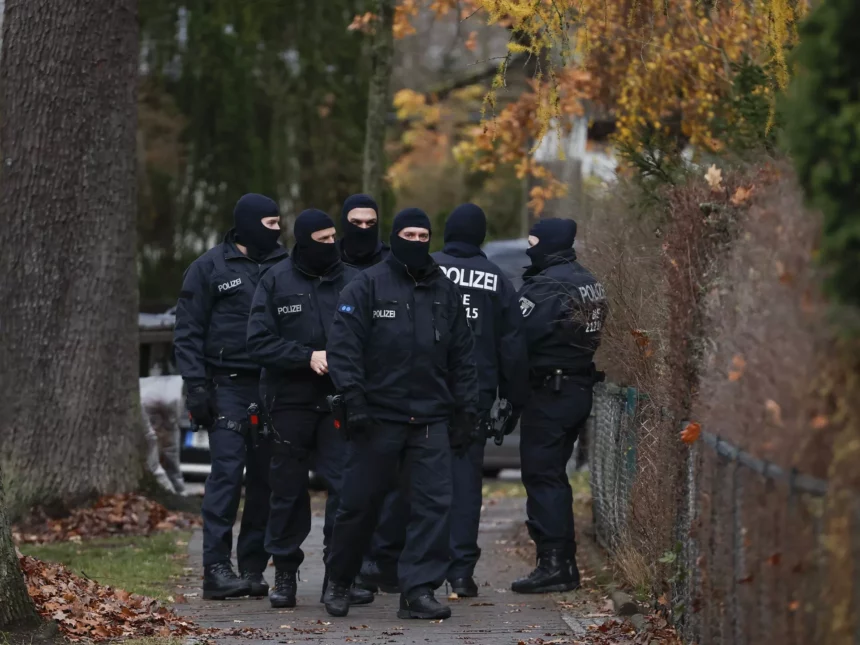According to the federal prosecutor’s office, German police have detained 25 purported members and sympathisers of a far-right organisation in nationwide searches who were reportedly attempting to oust the government by force and replace it with a prince who had sought backing from Russia. One of the largest counterterrorism efforts in German history involved more than 3,000 police personnel, notably special forces, conducting 130 early morning searches throughout 11 of the country’s 16 federal states.
A reputed man with a long-standing royal title and several veterans of the military forces are among those in the as-yet-unnamed group who are suspected. It is focused on the so-called “Reichsbürger” movement, or “Reich Citizens,” which is driven by rumours about the function and legality of the contemporary German state.
Members of the group were allegedly accused of “having made concrete preparations to force their way into the German parliament with a small armed group,” according to the prosecution. They continued by stating that three other people, including a Russian national, reportedly backed the organisation while 22 German citizens were seized on suspicion of “participation in a terrorist organisation.”
Other suspects are associated with the QAnon movement, which thinks that a fictitious “deep state” of hidden forces manipulating politics controls their nation. Germans were told by Interior Minister Nancy Faeser that law enforcement would use all available legal means “against the enemies of democracy.”
She claimed that the organisation detested democracy and the state and was “motivated by dreams of violent upheaval and conspiracy ideas” and the extent of the coup plans’ development will become clearer as a result of more investigations, she predicted.
The prosecutor’s office released a report early on Wednesday saying, “The members of the association are aware that this project can only be fulfilled with the use of military methods and violence against state representatives.” According to the report, there is “suspicion that specific association members have formed real plans to forcibly attack” the Bundestag, the lower chamber of the German parliament, “with a small armed group.” “The details are yet to be worked out,” it further stated.
Some group members demand the overthrow of the elected government and oppose the post-war constitution. They do not rule out using violence against the state to accomplish their objectives. The facilities of Germany’s special forces unit KSK in the town of Calw were among the locations attacked, according to reports and the KSK has already been under scrutiny for potential far-right activity by some of its soldiers. Although federal prosecutors might have confirmed or denied that the camps were inspected, they chose not to.
According to the prosecutor’s office, more suspects have been detained in the states of Baden-Württemberg, Bavaria, Berlin, Hesse, Lower Saxony, Saxony, and Thuringia as well as in neighbouring Austria and Italy.












